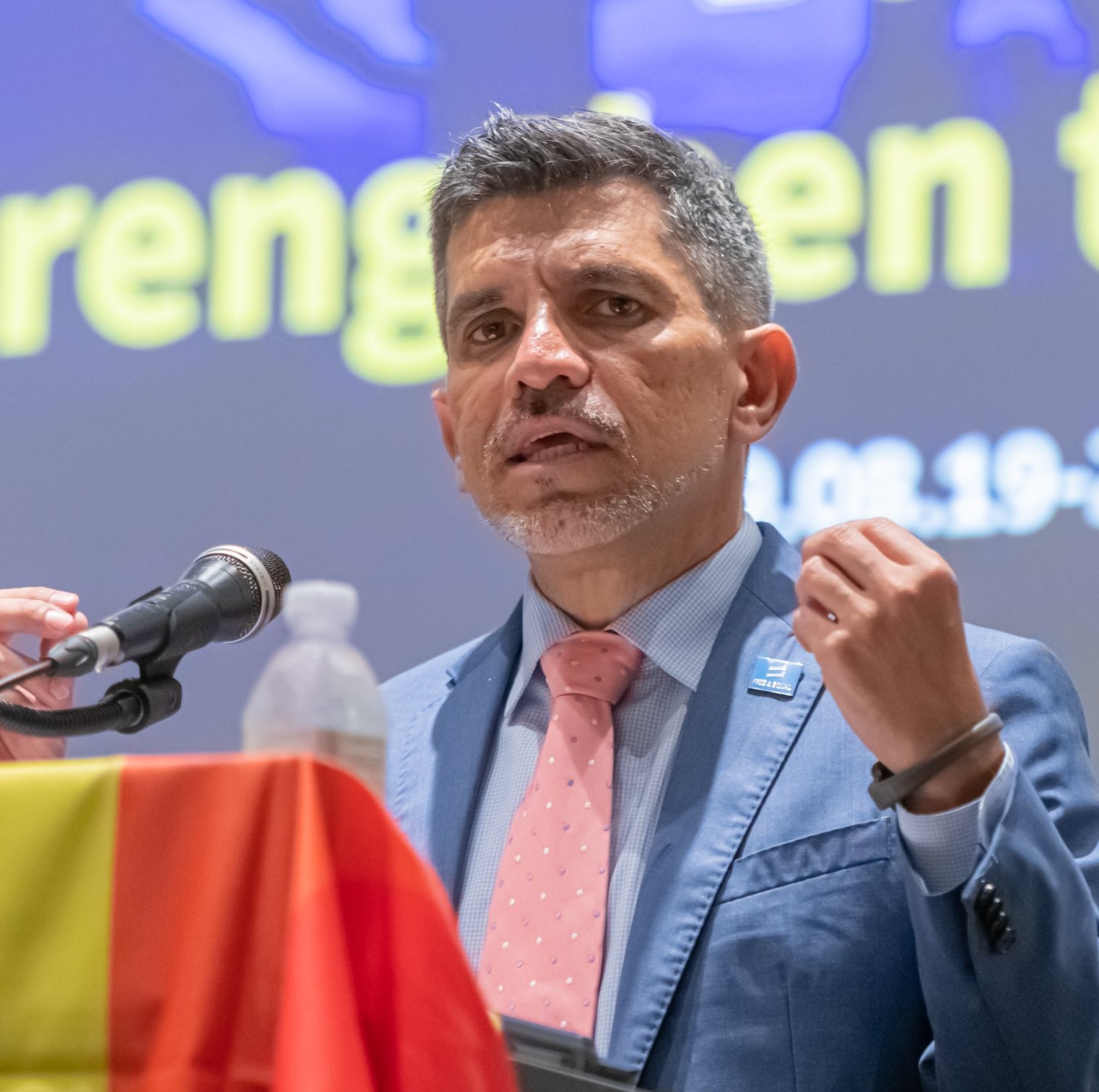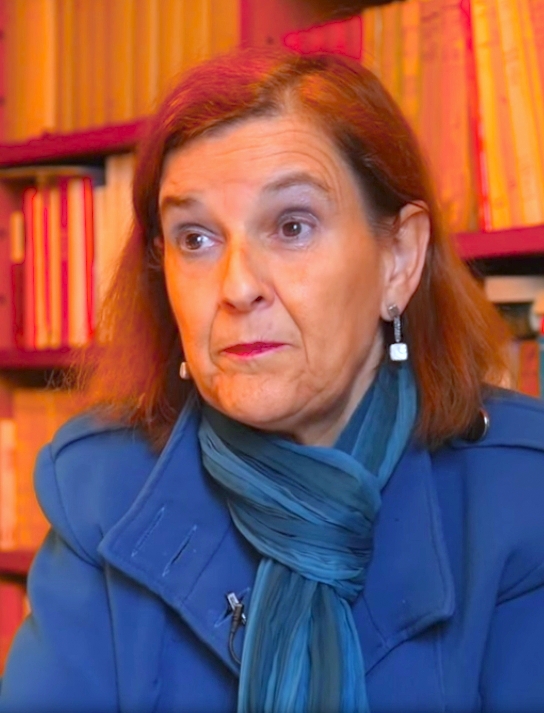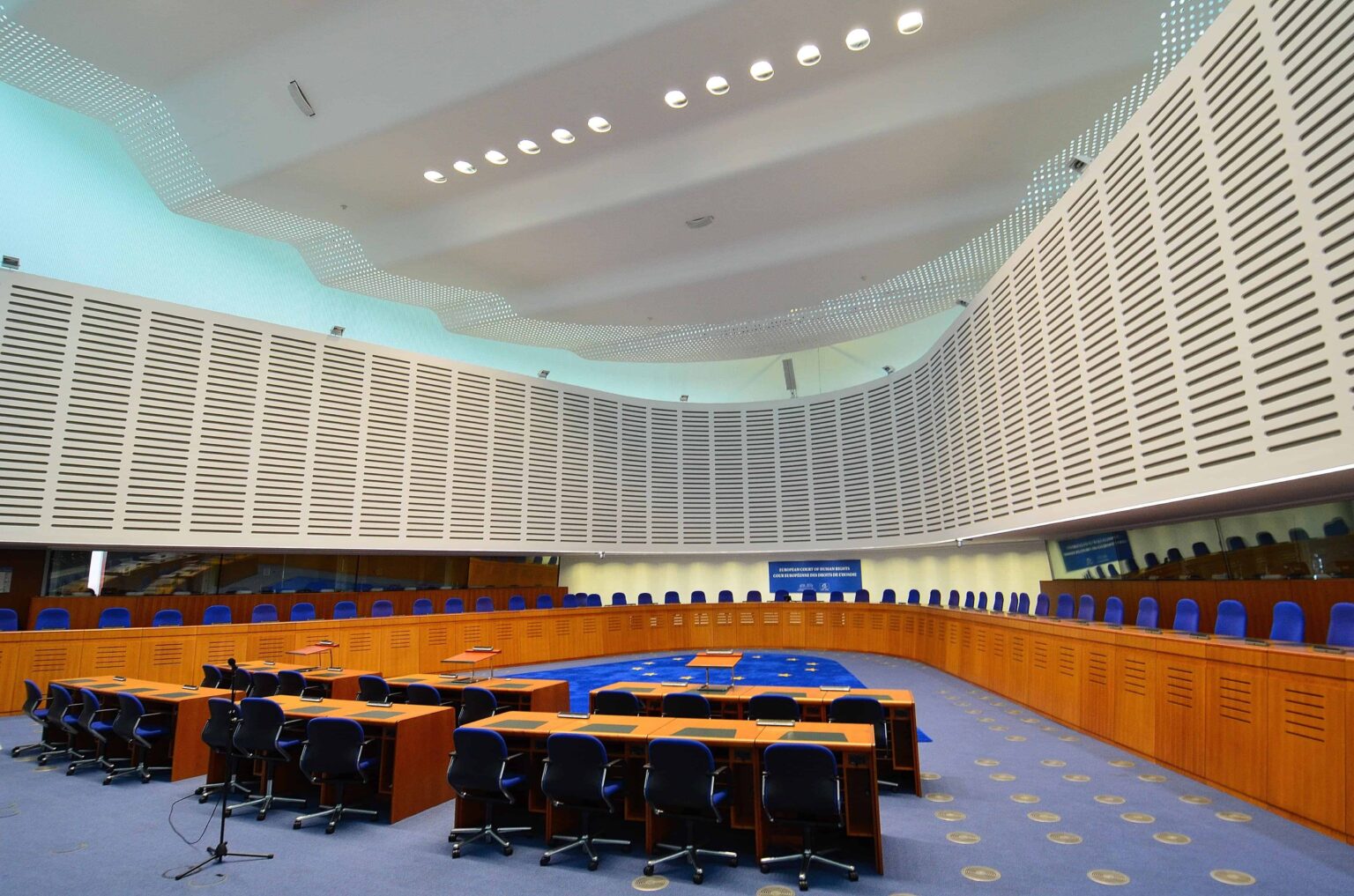Minasyan and others v. Armenia

Incitement to discrimination/Hate speech
(Application no. 59180/15), 20 July 2018
Find here the communicated case.
- The applications involve newspaper publications containing discriminatory language and incitement to discrimination against the applicants due to their association with the LGBT community and/or their perceived sexual orientation. The Armenian courts ignored the allegations of discrimination based on actual or perceived sexual orientation and gender identity.
- ILGA-Europe together with TGEU submitted the following:
- The ECtHR and other authoritative bodies in Europe and beyond have recognised that homophobic and transphobic statements constitute hate speech. Besides, the Court held that homophobic and transphobic speech may violate Articles 8 and 14 ECHR due to its humiliating and stigmatising effect.
- Contracting States have a positive obligation to protect against and investigate hate speech. This obligation is heightened when hate speech is motivated by discrimination against one’s actual or perceived sexual orientation or gender identity. The margin of appreciation allowed to the State under Article 8 may be restricted because sexual orientation and gender identity are important facets of an individual’s private life and can be used as a marker of group identity. In addition, acknowledging a heightened level of protection does not contravene freedom of expression, which is not an absolute right and can be restricted according to Article 10(2).
- LGBT persons and affiliates in Armenia are prevented from seeking redress against hate/discriminatory speech, and continuously struggle to enjoy equality, both at personal and societal levels due to lack of of adequate legal framework and the hostile attitudes against the LGBT community.
First report from UN SOGI Expert Madrigal-Borloz published

The UN Independent Expert on protection against violence and discrimination based on sexual orientation and gender identity, Victor Madrigal-Borloz, has published his first report.
The report highlights that LGBTI people are particularly vulnerable to violence, ill-treatment and discrimination, many facing it every day, at the hands of state authorities, individuals, criminal gangs, and even their own families.
Legislation criminalising same-sex acts as well as legislation limiting the freedom of expression around this topic “fuel stigma, legitimise prejudice and expose people to family and institutional violence and further human rights abuses, such as hate crimes, death threats and torture”.
Furthermore, the report highlights entrenched gender norms and societal expectations of how things should be (such as notions of what constitutes male and female, masculine and feminine, binary and non-binary, family and relationships) and the consequent will of some to punish, destroy or fix those who are seen not to fit these norms by virtue of their sexual orientation, gender identity, or gender expression.
In particular, ILGA-Europe welcome the intersectional approach this report takes, highlighting the multidimensionality of the experience of any given individual, and drawing particular attention to the experiences of trans and bisexual individuals. ILGA-Europe would, however, welcome more attention to the experiences of intersex people.
We look forward to working with Victor Madrigal-Borloz in the coming months and years to tackle the root causes of discrimination and violence against all members of the LGBTI communities.
- Read Victor Madrigal-Borloz’s full report in full here.
Alekseyev and Others v. Russia

Hate speech
(Application No. 39954/09), 11 April 2018
Find here the communicated case.
- The applications concern two interviews with public officials published in the national press, during which heinous statements against homosexuals were made. The Russian authorities refused to open criminal proceedings, finding that homosexuals were not a social group and that the applicants were not personally targeted by the contested statement.
- ILGA-Europe submitted the following:
- There is widespread recognition within Europe and beyond that homophobic and transphobic statements amount to hate speech. The ECtHR and other human rights bodies have highlighted the particular responsibility of politicians to avoid disseminating words likely to foster intolerance.
- Homophobic and transphobic statements have a humiliating and stigmatising effect. The ECtHR has considered that violence perpetrated with homophobic and transphobic overtones was capable of meeting the threshold required for a violation of Article 3. Homophobic and transphobic statements can also have extremely serious repercussions for the enjoyment of other rights and freedoms, notably, the right to respect for private and family life and the prohibition of discrimination under Articles 8 and 14 of the Convention.
- International and European law and standards support the need for action against particular uses of hate speech through the application of administrative, civil and criminal law.
Concern over Elósegui appointment to European Court of Human Rights

ILGA-Europe and other NGO’s express concern over revelations about newly elected judge at the European Court of Human Rights, María Elosegui’s homophobic and transphobic publications and statements.
The appointment to the European Court of Human Rights (ECtHR) of Spanish jurist and Professor of Philosophy of Law at the Faculty of Law at the University of Zaragoza, María Elósegui Itxaso is a cause for concern for NGO’s working in the LGBTI sector, including ILGA-Europe.
Elósegui, the first female Spanish judge on the court, has made various homophobic, transphobic and anti-feminist statements over the years.
The European Court of Human Rights has been the source of many powerful judgments that protect the rights of LGBTI people. Its 47 judges are at the very core of that work.
ILGA-Europe are passionate advocates for human rights and take our strategic litigation work at European level incredibly seriously. The judges who hear cases at the Strasbourg court are not only highly qualified legal professionals, but they are also a personification of the major decisions being handed down. Decisions that can literally change people’s lives.
We hope that all judges elected to serve at the ECtHR do so with an open mind, free from bias. Any suggestion of anti-LGBTI bias obviously gives us cause for concern.
ILGA-Europe are therefore concerned by the revelations about Judge Elosegui’s reported homo- and transphobic publications and statements, as reproduced in recent media articles, that came to light just after her election last week. Together with organisations specialised in litigation and Spanish human rights groups, we are monitoring the situation and will assess any further information, as and when it arises.
Co-signed by:
Beizaras and Levickas v. Lithuania

Online hate speech
(Application no. 41288/15), 24 October 2017
Find here the communicated case.
- The case concerns hateful comments on Facebook relating to a picture depicting a same-sex kiss between the two applicants. The applicants complained that the discontinuation of the criminal investigation by the Lithuanian authorities constitutes a violation of Article 14 ECtHR (non-discrimination), taken in conjunction with Article 8 (right to private life).
- ILGA-Europe together with the AIRE Centre, the ICJ and the HRMI submitted the following:
- The ECtHR uses two approaches when dealing with cases concerning incitement to hatred. The approach of exclusion from the Convention is provided for by Article 17 (prohibition of abuse of rights), where the comments in question amount to hate speech and negate the fundamental values of the Convention. The approach of restriction stems from the fact that freedom of expression is not absolute and can be limited pursuant to Article 10 (2). In its jurisprudence on extreme forms of expression, this Court has employed a case-by-case approach.
- Failure to investigate, prosecute and punish hate speech amounts to a breach of the positive obligations under the Convention.
- In many European countries, the term “hatred” generally includes hatred on the grounds of sex and sexual orientation. Homophobic or transphobic motivation is often considered an aggravating circumstance or a factor triggering stronger penalties for other, common criminal offences.
- According to various surveys, LGBT people are perceived as one of the most vulnerable social groups in Lithuania.. A failure to acknowledge a biased nature of the anti-LGBT crimes, including hate speech, and/or to investigate reported incidence was recognized as one of the pressing issues during the second cycle of Lithuania’s Universal Periodic Review before the United Nations Human Rights Council.
Position on combating homophobic and transphobic speech and prohibiting incitement to discrimination, hostility or violence
ILGA-Europe’s position is based on international human rights standards. It respects the principle of indivisibility of human rights and establishes no hierarchy between rights and freedoms, including freedom of thought, conscience and religion. It can by no means be understood as an attempt to limit the expression of different opinions in the frame of legitimate political debates relating to the rights of LGBTI people.
General principles
- ILGA-Europe calls on public authorities to adopt comprehensive strategies to combat prejudice and to promote dialogue, education and mutual respect to achieve full inclusion of lesbian, gay, bisexual, trans and intersex (LGBTI) people in a society free from intolerance.
- ILGA-Europe believes that public authorities must guarantee LGBTI people’s freedom of expression, a necessary condition to combat intolerance, prejudice and incitement.
Comprehensive action against prejudice
- ILGA-Europe calls on governments, legislatures, independent equality bodies and other public authorities to implement sound anti-discrimination and awareness raising policies in their respective remit. This includes mechanisms to tackle and react to manifestations of intolerance and prejudice in all relevant sectors.
- The area of education is a priority in that respect. Another priority is the professional training of all relevant public sector professionals. Public information campaigns are equally necessary, particularly in areas such as intolerance on-line or in sports.
- The media and their professional organisations should be encouraged to develop and respect codes of conduct reflecting equality principles and to provide specific training to their staff, including on issues related to sexual orientation, gender identity and gender expression.
- All relevant stakeholders should cooperate with civil society organisations, including community-based organisations, in order to build on their expertise.
Prohibition of incitement to discrimination, hostility and violence
- ILGA-Europe calls on legislators to prohibit incitement to discrimination, hostility and violence on all grounds, including sexual orientation, gender identity and gender expression, in the respect of international human rights standards (UDHR, ICCPR, ECHR). Victims should be provided with a range of appropriate remedies, including civil law redress mechanisms and the right to reply.
- Prohibition of incitement must always be provided by law, be necessary and proportional to its objective. Relevant prohibiting provisions should be consistent with anti-discrimination and criminal legislation. They should not create penalties that would be more severe than the sanctions applicable to cases of actual discrimination, hostility and violence.
- Legislation should define clear guidelines for Courts to assess all incitement cases in a coherent way, on the basis of well-defined criteria.